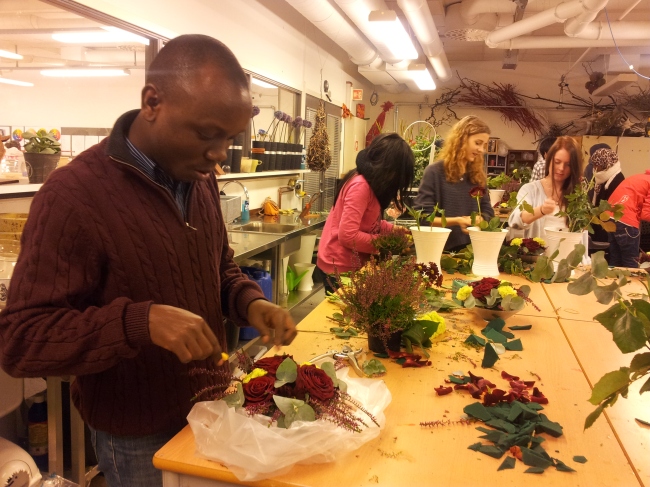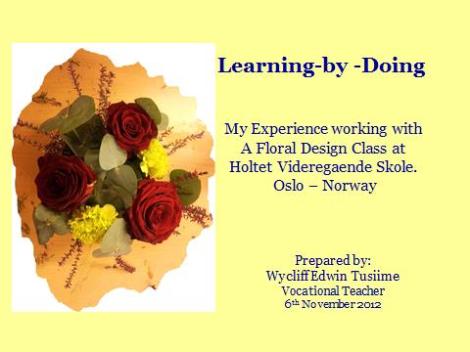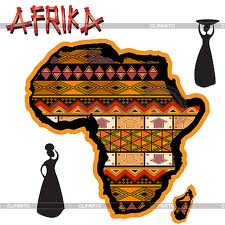Having closely worked and attending classes by one professional Norwegian florist Erik Køpke I have realized how I could have made a fortune from the variety of flowers that grow naturally around homesteads and the wild in almost every part of Uganda where I grew up. Erik is a professional practical florist, also currently studying to become a vocational teacher so he can share his expertise and skills with the young and old. I was inspired by his creative skill and love for flowers when I attended his exhibition at Oslo and Akershus University College of Applied Sciences (HIOA) in June 2012. He demonstrated to everyone how he turns flowers into admirable, interesting and an income generating activity. Through his professors, I got his contacts and asked to closely work with him and visit his classes in a vocational secondary school he taught. Here are some realities;
- Flowers grow almost everywhere in the world at least for Uganda where I come from, we just need to open our eyes to see them and give them attention.
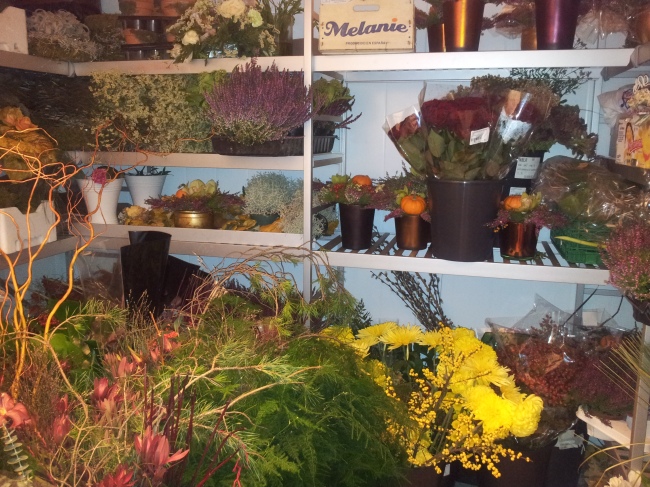
Anyone with interest can be a florist or at least practice the art given a range of uses that flowers offer. You don’t need to start a professional level; even our great grandparents decorated their homes and compounds during festivities. 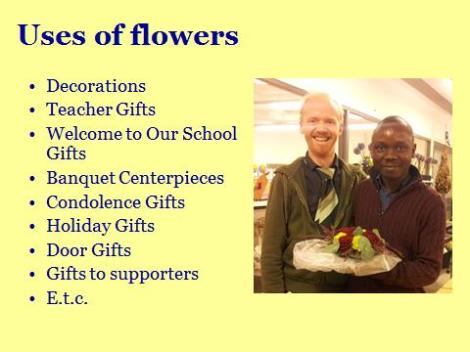 3. Floral deco designs can be created around any theme/inspiration.
3. Floral deco designs can be created around any theme/inspiration. 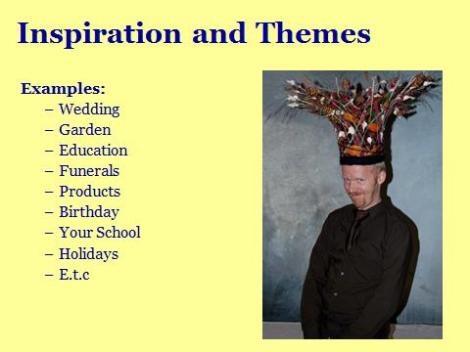 4. There are a variety of tools and materials available (both rudimentary and modern) to use in assembling flowers into a beautiful artwork /decoration.
4. There are a variety of tools and materials available (both rudimentary and modern) to use in assembling flowers into a beautiful artwork /decoration.
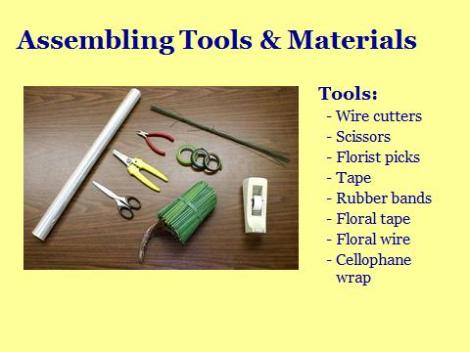
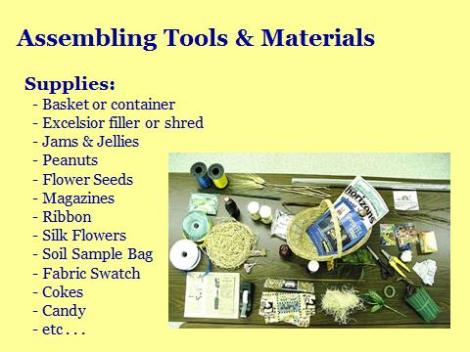 5. There is huge market for flowers and floral designs the world over including the rural communities like local African churches, wedding and graduation venues and parties for one who cannot market this art at a national or commercial level. Most flowers in Europe particularly Norway are imported mainly from Africa according to Erik Køpke who also makes orders from some parts in Africa for his work.
5. There is huge market for flowers and floral designs the world over including the rural communities like local African churches, wedding and graduation venues and parties for one who cannot market this art at a national or commercial level. Most flowers in Europe particularly Norway are imported mainly from Africa according to Erik Køpke who also makes orders from some parts in Africa for his work.
6. Lastly and most importantly, believe in yourself that you can do it (I mean you can be a florist and make your own designs). All you need is to market and share with colleagues and others what you do. Below are some of my powerful designs as a result of all the experiences working with Erik Køpke, a Norwegian professional florist.
CAN YOU MAKE YOUR OWN FLORAL DESIGN TODAY AND EARN BIG?


